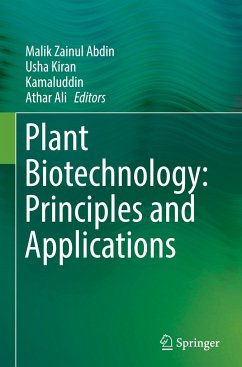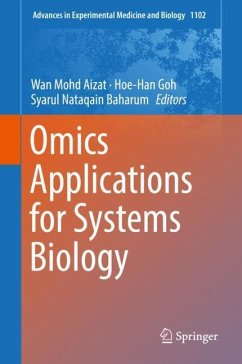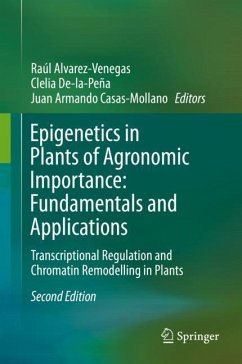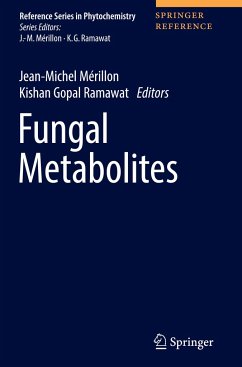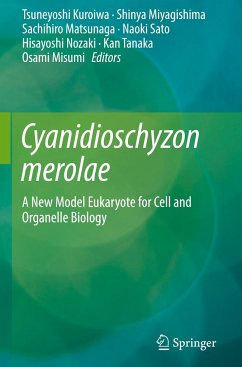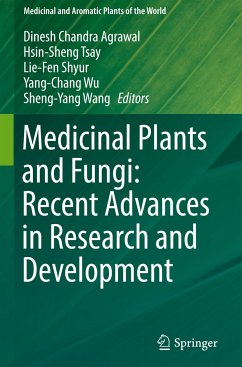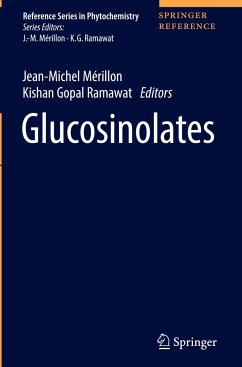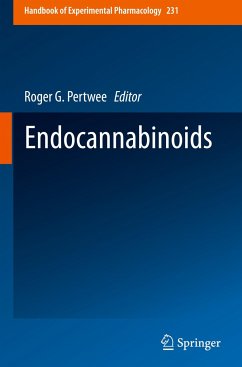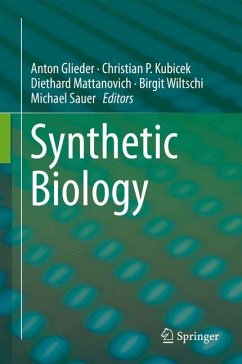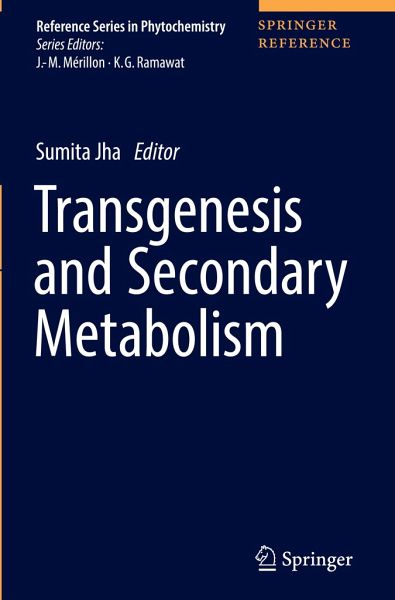
Transgenesis and Secondary Metabolism
Versandkostenfrei!
Versandfertig in 6-10 Tagen
152,99 €
inkl. MwSt.

PAYBACK Punkte
76 °P sammeln!
This handbook provides comprehensive reference information on the efficient production of secondary metabolites from plants by transgenesis and other genetic manipulation strategies. It reviews and summarizes selected important case studies in genetic methods applied to enhance the production of a given metabolite or a group of related or derived compounds. Readers will find reference information on a multitude of techniques and methods, including traditional breeding and screening; over-expression of genes encoding key enzymes; functional genomics approaches; metabolic engineering of the rele...
This handbook provides comprehensive reference information on the efficient production of secondary metabolites from plants by transgenesis and other genetic manipulation strategies. It reviews and summarizes selected important case studies in genetic methods applied to enhance the production of a given metabolite or a group of related or derived compounds. Readers will find reference information on a multitude of techniques and methods, including traditional breeding and screening; over-expression of genes encoding key enzymes; functional genomics approaches; metabolic engineering of the relevant biosynthetic pathways; indirect genetic approaches to improve metabolite production, including Agrobacterium mediated transformations. Furthermore, combinatorial biochemistry approaches to engineer secondary metabolic pathways are summarized, which can offer access to new structures or to the design of novel compounds.
Since many commercially valuablesubstances are still extracted from plants, being largely inaccessible to efficient modern laboratory synthesis methods, this book provides a valuable resource of information for biotechnological approaches that can help to find alternative and more efficient methods for the production of natural secondary metabolites. Thus adjusted production methods, with the help of tailored plant systems, can potentially help to release the stress on plants, which are currently suffering from extensive human harvesting, and to conserve global biodiversity.
Readers will find comprehensive reference information on plant genetic manipulation toward more efficient synthesis, accumulation and production of target secondary metabolites. The handbook will appeal to researchers and professionals, but also graduate students and scholars working in the fields of biotechnology, genetic engineering, medicinal plant research, pharmacy, and phytochemistry.
Since many commercially valuablesubstances are still extracted from plants, being largely inaccessible to efficient modern laboratory synthesis methods, this book provides a valuable resource of information for biotechnological approaches that can help to find alternative and more efficient methods for the production of natural secondary metabolites. Thus adjusted production methods, with the help of tailored plant systems, can potentially help to release the stress on plants, which are currently suffering from extensive human harvesting, and to conserve global biodiversity.
Readers will find comprehensive reference information on plant genetic manipulation toward more efficient synthesis, accumulation and production of target secondary metabolites. The handbook will appeal to researchers and professionals, but also graduate students and scholars working in the fields of biotechnology, genetic engineering, medicinal plant research, pharmacy, and phytochemistry.



